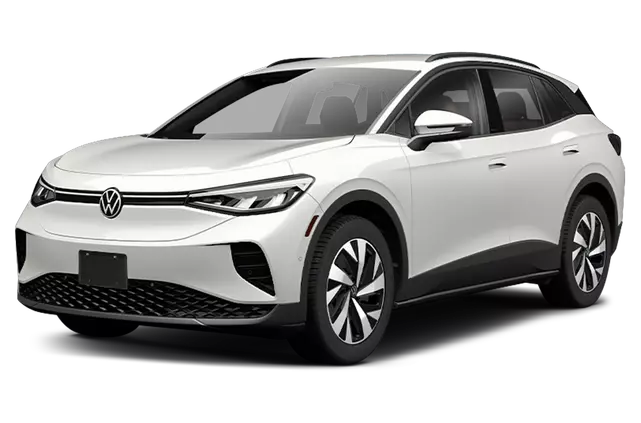Are you thinking about purchasing a battery-powered electric vehicle (EV)? With the increasing popularity and advancements in EV technology, it’s no wonder that more people are thinking about making the switch. In recent years, electric vehicles have transcended their niche status to become a focal point of innovation and change within the automotive industry.
Featured Image Courtesy of: freepik
With technological advancements, environmental concerns, and a growing emphasis on sustainable transportation, more and more consumers are contemplating the transition to electric vehicles.
By reducing dependence on fossil fuels and minimizing tailpipe emissions, EVs contribute directly to the mitigation of air pollution and combating climate change.
However, making the switch requires careful consideration and understanding of the unique facets that come with owning an EV.
This comprehensive guide will delve into the five crucial factors that every potential EV buyer should know before embarking on this transformative journey.
Range Anxiety and Charging Infrastructure
One of the primary concerns for potential EV owners is range anxiety – the fear of running out of battery power while on the road. Unlike traditional gasoline-powered vehicles with easily accessible refueling stations, charging infrastructure for EVs is still developing in many areas.
Understanding your daily driving habits is essential and determining if an electric vehicle can meet your needs. Consider how far you typically drive each day and whether there are sufficient charging stations along your regular routes or at your destination points. Additionally, keep in mind that cold weather conditions can reduce battery efficiency and overall range.
Moreover, the availability and accessibility of charging stations play a crucial role in your EV experience. Research the charging infrastructure in your region – are there charging stations at convenient locations, such as workplaces, shopping centers, and along major highways?
Public charging networks continue to expand, making it easier to find charging points, but ensuring your daily travel needs align with the existing infrastructure is wise.
Charging Time and Types of Chargers
Charging time is another crucial aspect when considering purchasing an electric vehicle. The charging speed depends on various factors like charger type, battery size, and current state of charge.
Level 1 chargers use standard household outlets (120V) but provide slow charging speeds suitable primarily for overnight charging at home or work environments where longer durations aren’t problematic.
Level 2 chargers require dedicated circuits using higher-voltage connections (240V), enabling faster charging times ranging from several hours to half a day, depending on battery size and initial charge level. These chargers are convenient if you regularly access them at home or public locations.
For faster charging on long-distance trips, DC fast chargers are the solution. They can charge EVs up to 80% in as little as 20-30 minutes, but their availability may be limited and not always compatible with all vehicle models.
Before purchasing an EV, assess your daily driving patterns and determine which charger type aligns best with your needs. Having a Level 2 charger at home can enhance your convenience, but utilizing DC fast chargers strategically can also alleviate range anxiety for longer journeys.
Total Cost of Ownership
While electric vehicles might have a higher upfront cost than their internal combustion engine counterparts, but the total cost of ownership (TCO) can be considerably lower over time.
EVs have minimal moving parts and require less maintenance, reducing maintenance and repair costs. Additionally, the electricity cost is generally lower than gasoline or diesel, further contributing to the lower TCO.
Furthermore, governments in various regions offer incentives such as tax credits, rebates, and reduced registration fees for EV owners. These incentives can significantly offset the initial purchase price. Research the incentives available in your area to better understand the financial benefits of buying an EV.
Calculating your potential savings on fuel costs and reduced maintenance can give you a clearer picture of how much owning an EV could save you over its lifetime compared to a gasoline-powered car.
Battery Life and Degradation
The longevity of an electric vehicle’s battery is a critical factor that impacts both performance and cost-effectiveness. Modern EV batteries are designed to last for several years, but like any other technology, they experience degradation over time. It’s crucial to research the battery warranty provided by the manufacturer and understand the terms and conditions.
Battery degradation can lead to reduced range and performance over the vehicle’s lifespan. However, manufacturers are making significant strides in battery technology, and some EV models offer advanced thermal management systems to mitigate degradation.
Regular maintenance practices, such as avoiding extreme temperature fluctuations and using recommended charging habits, can also help prolong the battery’s life. Understanding the factors involved will help you decide whether an electric vehicle is a suitable long-term investment for your needs.
Environmental Impact and Sustainability
One of the driving forces behind the EV movement is the desire to reduce greenhouse gas emissions and lessen the environmental impact of transportation. EVs produce zero tailpipe emissions, making them a cleaner alternative to traditional internal combustion engine vehicles.
However, the environmental benefits of EVs also depend on the source of electricity used for charging. If your region relies heavily on fossil fuels for electricity generation, the overall emissions reduction might be less significant.
Nevertheless, as renewable energy sources like solar and wind power become more prevalent, the carbon footprint of EVs continues to decrease.
Conclusion
As the automotive industry evolves and electric vehicles become more prevalent, prospective buyers should educate themselves about the key aspects of EV ownership. From addressing range anxiety to understanding charging infrastructure and battery life, these considerations are essential for making an informed decision.
With careful research and a clear understanding of your driving habits and requirements, purchasing an electric vehicle can be a rewarding and environmentally responsible choice for the future of transportation.


